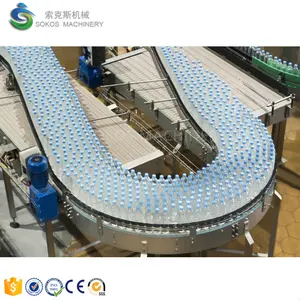
All categories
Featured selections
Trade Assurance
Buyer Central
Help Center
Get the app
Become a supplier
















Khám phá sự lựa chọn đa dạng của. Các loại máy lọc nước sản xuất máy lọc nước trên Alibaba.com mang đến khả năng không giới hạn cho vẻ ngoài cá tính với thời trang tóc sành điệu. Những điều này cũng thích hợp cho các doanh nghiệp, cho cả người bán buôn và chủ tiệm. Chúng có trong một bộ sưu tập lớn bao gồm độc nhất. máy lọc nước sản xuất máy lọc nước các loại có màu sắc và kiểu dáng riêng biệt để đáp ứng nhu cầu của tất cả người mua sắm. Những lời đề nghị hấp dẫn khiến chúng có giá cả phải chăng đến khó tin.
Các nhà sản xuất sử dụng những vật liệu tiện dụng để làm nên những sản phẩm tuyệt vời này. Các tùy chọn máy lọc nước sản xuất máy lọc nước để đảm bảo rằng chúng tương thích với mọi loại da, do đó, chúng không gây kích ứng. Điều này làm cho chúng phù hợp với hầu như bất kỳ người dùng nào muốn có chúng. Các vật liệu đảm bảo rằng chúng hòa hợp tốt với tóc tự nhiên vì kết cấu tự nhiên của chúng. Để có trải nghiệm người dùng tốt nhất, chúng dễ giặt và khô, giúp người dùng duy trì vẻ ngoài rực rỡ.
Tất cả. máy lọc nước sản xuất máy lọc nước nổi bật trên Alibaba.com tự hào về các tính năng chất lượng hàng đầu giúp đơn giản hóa việc tết bện hoặc dệt vải. Điều này đảm bảo với người dùng rằng họ sẽ luôn dễ dàng đạt được độ dài mong muốn của tóc. Do đó, họ mang đến cách hoàn hảo để nổi bật trong khi tạo ấn tượng thời trang lâu dài. Vì họ đến từ các nhà sản xuất và người bán đáng tin cậy nên mọi người mua sắm đều nhận được những sản phẩm được xếp hạng cao nhất sau mỗi lần mua hàng.
Khi xem qua Alibaba.com, những người mua tiềm năng sẽ nhận ra rằng không thể so sánh được. tùy chọn máy lọc nước sản xuất máy lọc nước. Bằng cách chọn những mặt hàng phù hợp với mục tiêu cá nhân hoặc mục tiêu kinh doanh của họ, người mua hàng sẽ trải nghiệm giá trị đồng tiền tốt nhất. Sự sang trọng và phong cách mà họ mang lại khiến họ xứng đáng với từng đồng tiền đầu tư vào chúng. Các sản phẩm này phù hợp với các nhà cung cấp vì chiết khấu không thể cạnh tranh hơn khi mua với số lượng lớn.